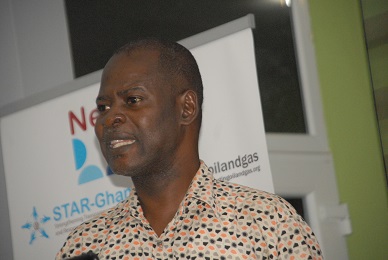PIAC alarmed over GH¢104m projects cost overruns
 Delays in the completion of some projects – notably roads, schools among other infrastructure funded with proceeds from the petroleum revenue – led to cost overruns of at least GH¢104million, according to some 11 projects monitored by Public Interest and Accountability Committee (PIAC).
Delays in the completion of some projects – notably roads, schools among other infrastructure funded with proceeds from the petroleum revenue – led to cost overruns of at least GH¢104million, according to some 11 projects monitored by Public Interest and Accountability Committee (PIAC).
In some cases, the cost of projects more than tripled as they stalled – usually due to reasons like lack of payment to contractors executing the job – the PIAC report released last Tuesday found.
One of the grim cases of cost overruns is the cost of constructing of Mampongteng Jubilee Market in the Ashanti Region, which started in 2012 and was awarded at a cost of GHȻ8.8million.
The revised contract sum for the project as at 2015 was about GH¢24million after it was abandoned for several years. The current cost is more than 300 percent more than was estimated about six years ago when the project commenced.
Another project that had cost overruns of more than GH¢30million was the Asikuma section of the Eastern Corridor project, which was initially billed to cost GH¢106million in 2011 when the 45km project was awarded.
According to PIAC in its Composite Report on District Engagements and Project Inspections between 2011 and 2016, these delays are a burden on taxpayers who will ultimately finance the cost overruns incurred.
Speaking at the report’s launch, Chairman of PIAC Dr. Steve Manteaw said: “Delayed payment to contractors for work done should be stopped as a matter of urgency, since it is the main cause of cost overruns in the execution of projects and does not give value for money. This said, contracts for the execution of projects should be awarded only after it is certain that the funds needed to complete the projects will be available”.
More issues
Another observation the PIAC made in its inspections and public engagement was the lack of involvement and coordination between the Ministries, Department and Agencies (MDAs) and District Assemblies in the selection and implementation of ABFA-funded projects undertaken in their respective jurisdictions.
Some of the participants who took part in the various fora held by PIAC teams across the country queried the criteria for selection of petroleum-funded projects in their communities, as most of the selected projects were not priority ones at the time.
“They recommended that the District Assemblies be actively involved in the selection and implementation of projects in their jurisdictions to ensure projects chosen are priority
ones and in line with the assemblies’ medium-term development plans. This would also ensure effective supervision of the projects by the assemblies to prevent abandonment of sites or shoddy work done by contractors,” Dr. Manteaw said.
Monitoring
PIAC, in an effort to give meaning to its mandate on compliance monitoring – and in response to demands by citizens to verify the existence and quality of projects funded with the Annual Budget Funding Amount (ABFA) – undertook physical monitoring of about forty ABFA projects across the country.
This exercise, according to PIAC, was aimed at gathering and obtaining first-hand information on the quality and impact of projects funded with petroleum revenues at the sub-national level.